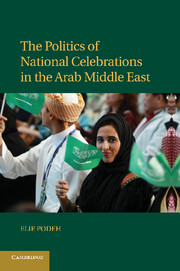5 - Jordan
Preserving Invented Traditions
Published online by Cambridge University Press: 05 July 2011
Summary
‘ABDALLAH: FROM EMIR TO KING (1921–1951)
Marching from the Hijaz, accompanied by some of his loyal supporters, Emir ‘Abdallah appeared in southern Transjordan in late 1920. Upon his arrival, certain tribal leaders pledged their allegiance (Bay‘a) to him. Ostensibly, his intention was to proceed to Damascus, to avenge the ouster of his brother Faysal by the French in the summer. It is reasonable to assume that ‘Abdallah made a calculated move aimed at settling in this sparsely populated land (estimated at 225,000 people, half of them members of nomadic tribes), which would enable him to closely watch the more coveted territory of Greater Syria. Indeed, at the March 1921 Cairo Conference, Winston Churchill, the British colonial secretary, agreed to an “interim” settlement in which ‘Abdallah would establish an emirate in this loosely defined territory of Transjordan. Though he considered this decision little more than a “consolation prize,” it was a historical moment that laid the foundation for the creation of Jordan. Joseph Massad claimed that this was “Transjordan's colonial moment, its very inaugural moment.”
The decision to establish Transjordan (in Arabic Sharq al-Urdun, East Jordan) as an autonomous entity led to its formal separation from the Palestine mandate in 1922.
- Type
- Chapter
- Information
- The Politics of National Celebrations in the Arab Middle East , pp. 168 - 206Publisher: Cambridge University PressPrint publication year: 2011



